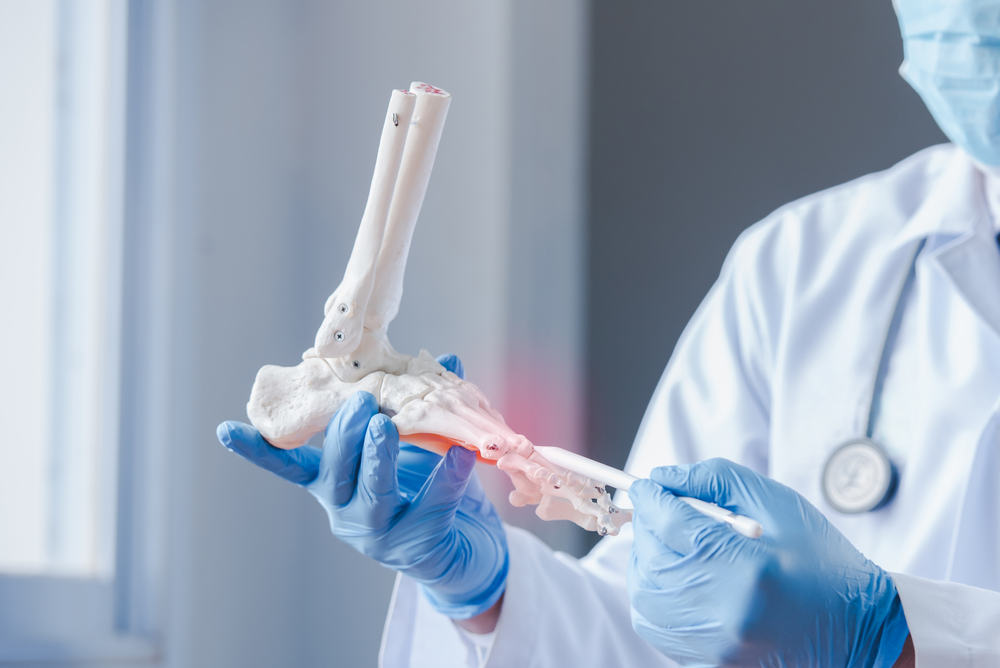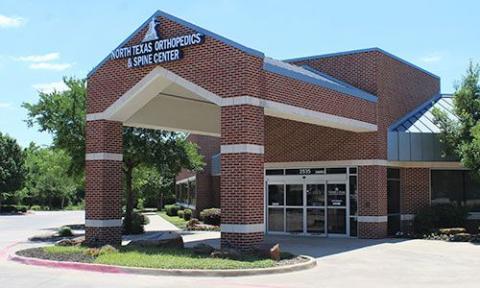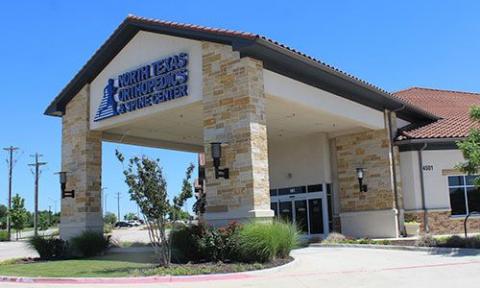At North Texas Orthopedics & Spine Center, our team of highly skilled orthopedic specialists is dedicated to providing comprehensive care for a wide range of musculoskeletal conditions. Our General Orthopedics services are designed to diagnose, treat, and manage disorders affecting bones, joints, muscles, tendons, and ligaments throughout the body.
Our experienced orthopedic surgeons and physicians utilize state-of-the-art technologies and innovative treatment methods to deliver personalized care tailored to each patient’s unique needs. Whether you’re dealing with a recent injury or a chronic condition, our team is committed to helping you achieve optimal recovery and improved quality of life.

See why our patients love our physicians, quality of care, and amazing results.
*Based on Independent Market Research
At North Texas Orthopedics & Spine Center, we believe in a multidisciplinary approach to orthopedic care. Our team works closely with physical therapists, pain management specialists, and other healthcare professionals to ensure that each patient receives comprehensive, coordinated care throughout their treatment journey.
We prioritize minimally invasive techniques whenever possible to reduce recovery time and minimize post-operative discomfort. Our goal is to help patients return to their daily activities and the pursuits they love as quickly and safely as possible.
If you’re experiencing musculoskeletal pain or limited mobility, don’t wait to seek help. Contact North Texas Orthopedics & Spine Center today to schedule a consultation with one of our General Orthopedics specialists. Let us help you get back to living your best life.
Our expert orthopedic team specializes in providing comprehensive care for a wide range of musculoskeletal conditions, utilizing the latest surgical and non-surgical techniques to help you regain mobility and live pain-free.


General orthopedists treat a wide range of musculoskeletal conditions affecting bones, joints, muscles, tendons, and ligaments throughout the body. This includes fractures, sprains, strains, arthritis, sports injuries, and degenerative conditions.
You should consider seeing a general orthopedist if you experience persistent pain, limited mobility, or difficulty performing daily activities due to a musculoskeletal issue. Additionally, if you have suffered a recent injury or have a chronic condition that requires specialized care, a general orthopedist can help.
During your initial consultation, the orthopedist will review your medical history, discuss your symptoms, and perform a physical examination. They may also order diagnostic tests such as X-rays, MRI, or CT scans to better understand your condition and develop an appropriate treatment plan.
General orthopedists offer a variety of non-surgical treatments, including physical therapy, pain management injections, bracing, and medication. These conservative approaches aim to reduce pain, improve mobility, and promote healing without the need for surgery.
Surgery may be recommended when conservative treatments have failed to provide relief or when the condition is severe and requires more invasive intervention. Common orthopedic surgeries include joint replacements, arthroscopic procedures, and fracture repairs.
Recovery time varies depending on the type of surgery and the individual patient. While some procedures may allow for a quick return to daily activities, others may require several weeks or months of rehabilitation. Your orthopedist will provide you with a detailed recovery plan and guidance on how to safely resume your normal activities.
Yes, general orthopedists often collaborate with a multidisciplinary team of healthcare professionals to provide comprehensive care. This may include physical therapists, pain management specialists, primary care physicians, and other specialists as needed.
To prepare for your appointment, gather any relevant medical records, imaging results, and a list of medications you are currently taking. Be prepared to discuss your symptoms, the onset of your condition, and any factors that may be contributing to your musculoskeletal issues. It can also be helpful to write down questions you have for your orthopedist beforehand.
© 2024, North Texas Orthopedics & Spine CENTER. All rights reserved.